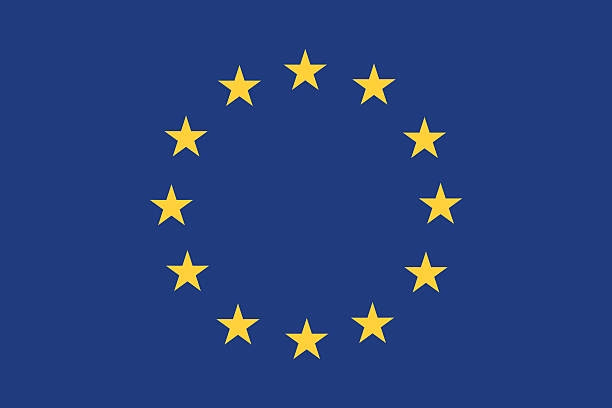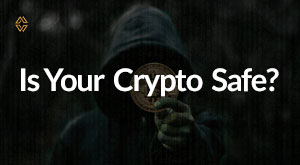gm 👋
Thank you for being a part of the Cypherock family. Come rain, hail or storm, we are heads-down building the best possible product to keep your digital assets safe!
Over the next 8-10 minutes, we will be talking about hacks that caught our eye, DApps that we found interesting and our picks from Twitter and Reddit that we enjoyed.
We would like to apologise for the delay in getting you this week’s edition. We were too busy trying to make sense of the world to distill down the details for you.
If you loved the newsletter, message us! If you hated the newsletter, message us! We’re always looking for fresh perspective on things to cover and feedback to make your experience better!
Have an awesome week ahead!
Team Cypherock
Security Digest
Why the next wave of discussion about crypto is going to be about self custody - EU Regulations and Centralised Exchange activity

There are two major events that caught our eye that are going to signal a major shift in the narrative over the coming months for the the world of crypto. The first are the set of regulations that are going to be passed to regulate digital assets in the EU, and the second, Coinbase requiring users in the Netherlands to declare the name and address of the individual that you are sending crypto to. To make sense of why these events are important, we need to set some context of what has been going on from a regulatory standpoint, and then establish what that means for you and the crypto ecosystem. LFG.
To understand everything that is going on, let’s start at the beginning - What is FATF, and what does it have to do with digital assets? The FATF - Financial Action Task Force is an independent inter-governmental body that develops and promotes policies to protect the global financial system against money laundering, terrorist financing and the financing of the proliferation of weapons of mass destruction. Over the past 5 years, they included digital assets as part of their purview.
In 2019, FATF introduced a policy for G-7 and an additional 30 countries called the Travel Rule. The Travel Rule stated that digital currency service providers - like exchanges for example - need to report identification information if transaction is above $1,000. Other countries were open to interpret the rule that would fit their crypto jurisdiction the best - for example the US implemented this rule at $3,000. The rule requires the following information to be shared: the name of the sender and the recipient, the address of the sender and the account number of the sender and the recipient.
Recently, Twitter went ablaze discussing the fact that Coinbase is requiring you to divulge the details of who you are sending crypto to. This rule was only applicable in the EU because the EU Travel Rule guidelines had set a precedent that all transactions need to be reported, and not just those above $1,000. Coinbase simply had to follow regulations. At present, the EU Institution is debating further on the scope of regulation regarding digital assets, and more importantly, what the future of self custody looks like.
There are two major issues being debated regarding crypto regulation in the EU the Markets in Crypto-Assets Regulation (MiCA) and the Transfer of Funds Regulation (TFR). MiCA is the EU’s way of establishing a regulatory framework that would set global standards for the oversight and regulation of blockchain based assets. Here are the crypto-assets mentioned being regulated under MiCA. TFR on the other hand aims to regulate “unhosted wallets” or for simplicity, self custody wallets like Cypherock. It is an extension to the travel rule where the EU wants to verify who owns self custody wallets and verify their transactions regardless of the amount of the transaction.
The final discussion regarding MiCA is supposed to take place on June 30th. Final points of discussion regarding the execution of MiCA and implementation timeline remains, but it seems that the TFR debate will be slightly more drawn out. At present day, what seems to be final is that all crypto transfers will fall under TFR without the 1,000 EUR threshold, but P2P transfers - transfers between “unhosted wallets” - will not be included. The decision for the latter was largely two-fold: verification of identity is very expensive, and there is no way to identify whether the service provider actually holds the keys of the “unhosted wallet”. The proposed solution is to use blockchain analysis tools to assess the risk of the respective transfer, and take action accordingly.
Now that we’ve gone through understanding the basics of what is happening in the EU, why does it matter? Decentralisation and privacy are a core promise of web3. Self custody of funds is a core aspect of this decentralisation. Removing self-custody from the equation renders space irrelevant, and converts a potentially game-changing social technology into a glorified database management system. As the weeks go by and regulation is introduced, more countries around the world will begin to implement their own plans for managing digital assets. As members of the web3 ecosystem, it is our job to educate ourselves, and find a way to contribute to the discussion.
Here is what you can do as a citizen of the decentralised world:
-
Follow regulatory information closely - the links mentioned in the write-up are a great place to start diving into various topics.
-
Uncertain regulatory environment often times create knee jerk reactions - take custody of your crypto and remove them from centralised locations - exchanges, CeFi etc. Luckily, we’ve worked on a pretty neat solution.
-
If you are knowledgable in the space, find a way to contribute. It can be as simple as writing a Twitter Thread. There will never come a time where we have too much information. Find a way to educate your peers.
DApp News
You have one missed call from Solana

In the midst of monkeys taking over New York, liquidity running low, people running away with millions of dollars, Solana decides to launch a web3 smartphone. Named the Solana Mobile Stack - or SMS for short - this web3 smartphone aims to be your gateway to the world of dApps via smartphone.
SMS is at the center of Solana Pay, Seed Vault - to secure your seed phrase and Solana’s native DApp store - all built on top of Android. The phone is available to pre-order for 100 USDC through the Solana website. The smartphone market is competitive, but what is more interesting to see over the coming months is, what the impact of web3 will be on the smartphone duopoly - android and iOS.
From a seed phrase security standpoint, it seems that the phone will function like a standard wallet following BIP39, but there may be features built with biometrics added later to secure your seed phrase. Further discussion regarding phone features can be seen here - co-founder Anatoly Yakovenko’s thread regarding SMS.
Twitter Tales
Wondering what the current state of DeFi is, and how badly the liquidity contagion has spread? Here is a table with a discussion thread with updated information.
Reddit Reads
Decentralisation is a core promise of the web3 community, but why is it important? This week’s Reddit Read is a discussion thread surrounding the question - what are the benefits of decentralization? If you’re bored of looking at prices falling, join in on the discussion.
What are the benefits of decentralisation? from r/CryptoCurrency
Updates from Cypherock
Have you seen the final iteration of our device? If not, you’re missing out. Check it out here.
Is Your Crypto Safe?

Will your crypto get hacked? Are you going to lose your crypto? Cypherock has come up with a detailed quiz that will help you understand the pros and cons of your security model. Upon completion, you will get a detailed analysis mailed to you. Take the quiz now!
Here’s some alpha 🚀
Security is our utmost concern. We want to keep your crypto safe and give you the best possible experience interacting with the web3 ecosystem. Because we like you, we want you to make money too!
Cypherock recently launched an affiliate program. You receive a unique code by either signing up on our website, or by purchasing a Cypherock X1. Through your code, your referrals receive 25% off on their purchase and you make $50 per sale!
Sign up to become a Cypherock Affiliate!
Have questions regarding our product, or the affiliate program? Our Growth Lead loves chatting with people, hit him up here.
